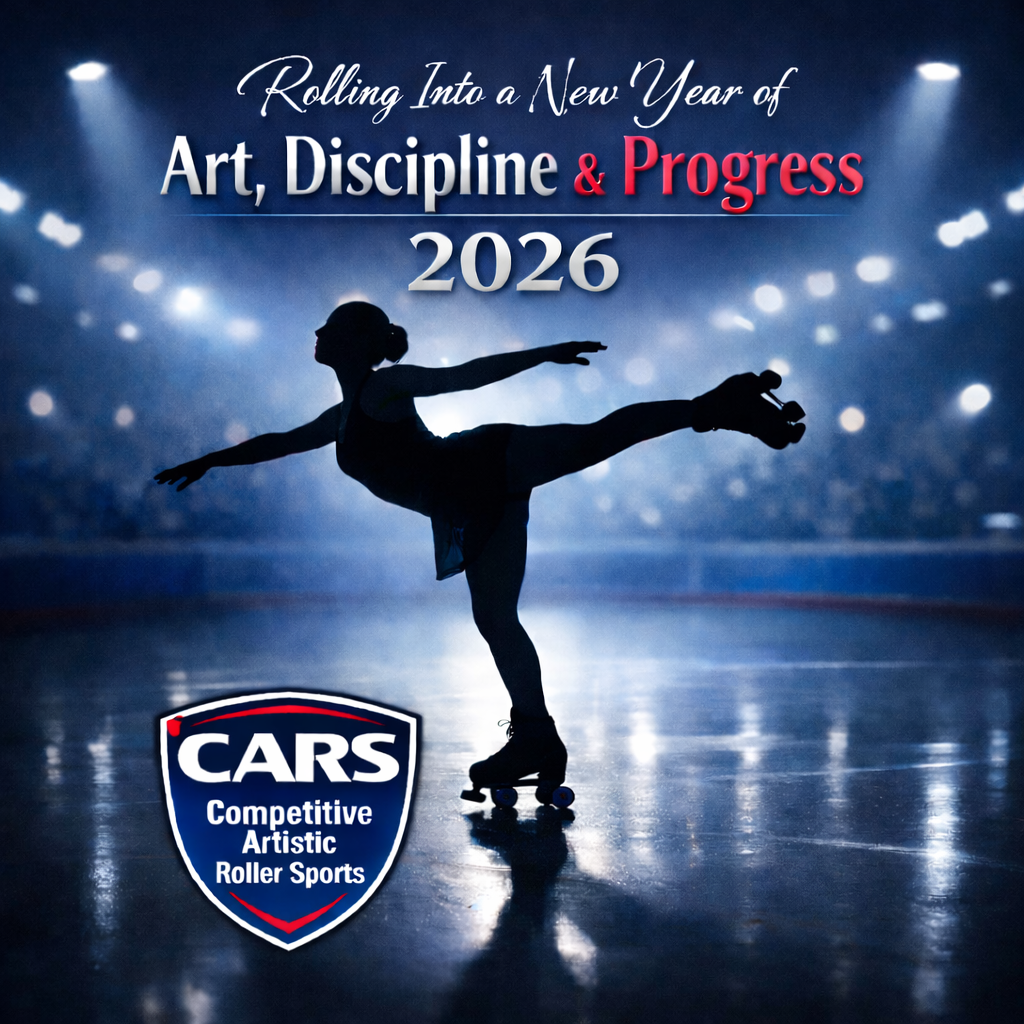🛼 Welcome to Competitive Artistic Roller Sports (CARS)
Elevating the Sport. Honoring the Art. Inspiring the Skater.
This site supports the Artistic Roller Sports community with directories for professional coaches and rinks that host artistic programs, along with CARS-developed technical guides and links to trusted technical manuals from governing bodies and other sources.
CARS is community-owned and exists to help skaters, parents, coaches, judges, clubs, and rink operators connect with the information and people they need to grow Artistic Roller Sports in a healthy, sustainable way.

📰 Latest Updates
🛼 Forward Outside → Backward Outside Dropped C-Turn (Mohawk)
One of the most misunderstood turns in Artistic Dance is the Forward Outside to Backward Outside Dropped C-Turn (Mohawk). This technical breakdown introduces the chassé structure, covering entry posture, foot placement, rotation mechanics, and weight transfer.
Read full article →Professional Coaches Directory – By State
This directory lists professional and actively teaching coaches in Artistic Roller Sports. Use the search box or dropdown below to filter entries by state.
Please select a state from the dropdown above to view coaches.
📋 Are You a Coach?
If you are a professional coach in Artistic Roller Sports and would like to be listed in this directory, click below to submit your information:
Rink Directory – Competitive Artistic Clubs by State
This directory lists roller skating rinks that host a competitive Artistic Roller Skating club. Use the search box or dropdown below to filter entries by state.
Please select a state from the dropdown above to view rinks.
🏢 Does Your Rink Host a Competitive Artistic Club?
If your rink hosts a competitive Artistic Roller Sports club and would like to be listed in this directory, click below to submit your information:
CARS Technical Guides
CARS-developed technical guides provide community-created educational content for Artistic Roller Sports. These guides are designed to support coaches, skaters, and parents in understanding technique, training principles, and program development.
Skating Fundamentals
- Weight Transfer Fundamentals – understanding placement vs. transfer mechanics
Skating Disciplines
Training & Development
- Off-skate strength and conditioning
- Flexibility and injury prevention
- Nutrition and fueling performance
- Youth and adult development guides
Program Development
Club Culture & Support
Community Resources
Building a positive, supportive community is at the heart of CARS. These resources help coaches, parents, and skaters foster a culture of respect, growth, and inspiration.
Culture & Communication
📘 Join Our Facebook Community
CARS Facebook Group — Connect with coaches, parents, and skaters across the country. Share experiences, ask questions, and celebrate achievements together!
Regulation Manuals & External Resources
This area provides convenient links to official and trusted technical resources from recognized organizations in the Artistic Roller Sports community.
- USARS – regulation manuals, rules, and event guidelines
- World Skate – international artistic roller skating regulations and documents
- American Roller Skating Association (ARS) – artistic resources where available
- RSA Achievement Program – information and test standards (where public or permitted)
- Skate Dance Diagrams and Tools
- Compulsory Dance Music by Tim Laskey
- 📺 BoxCast – Live streaming and replays of roller sports championships
Reference Materials
Essential reference documents and resources for coaches, athletes, judges, and parents.
📖 Glossary of Skating Terms
Comprehensive terminology reference covering all artistic roller skating disciplines - Dance, Figures, Freestyle, and Pairs. Includes technical elements, competition terms, and judging standards.
Contact & Future Features
As the CARS community continues to grow, this site will expand to include more guides, examples, and tools. Future areas may support:
- Searchable databases for coaches, clubs, and rinks
- Calendar of events, competitions, and test sessions
- Discussion forums or community boards
- Video tutorials and technique breakdowns
- Mentorship matching for coaches and skaters
Contact: To submit information for directories, suggest new guides, or contribute to CARS, please reach out via CARS@competitiverollersports.com. You can also connect with the CARS community at artisticrollersports.net.